Basic Arithmetic Normal Addition & Subtraction Worksheets for Ages 3-8
6 filtered results
-
From - To
Discover our comprehensive collection of Basic Arithmetic Normal Addition & Subtraction Worksheets, crafted for children ages 3-8. These engaging activities are designed to build a strong foundation in math by focusing on essential addition and subtraction skills. Each worksheet combines fun, themed exercises with educational challenges to keep young learners motivated. Perfect for classroom or home use, our worksheets help children develop fluency, accuracy, and confidence in their math abilities. Support your child’s mathematical journey with our expertly designed resources, ensuring they grasp fundamental concepts and excel in their early educational experiences. Explore today for free!
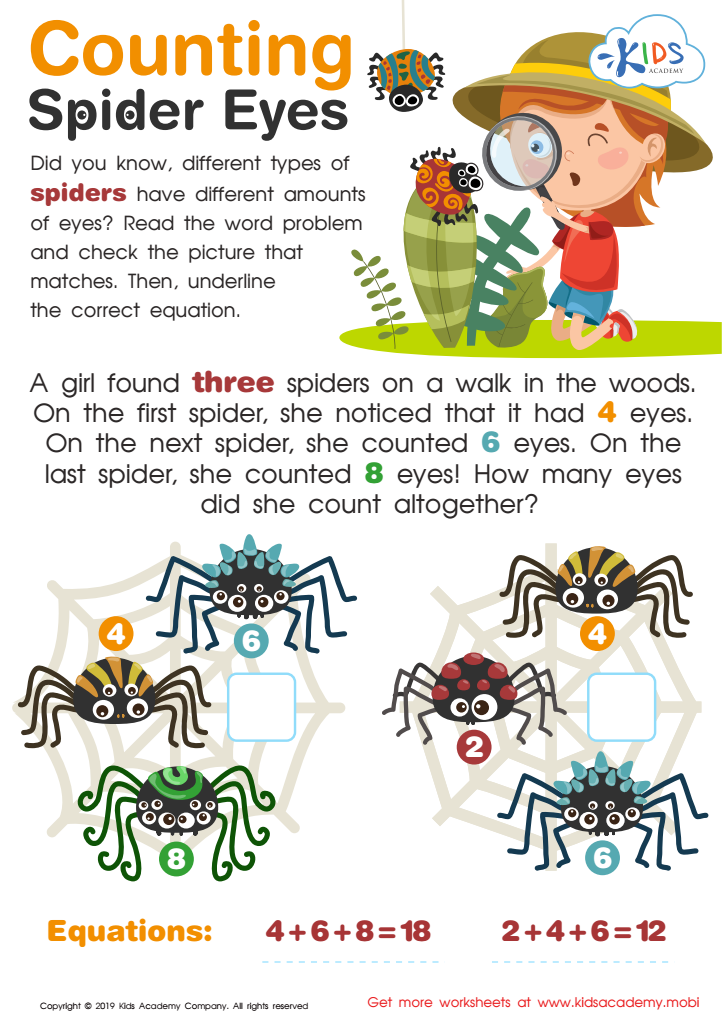

Counting Spider Eyes Worksheet
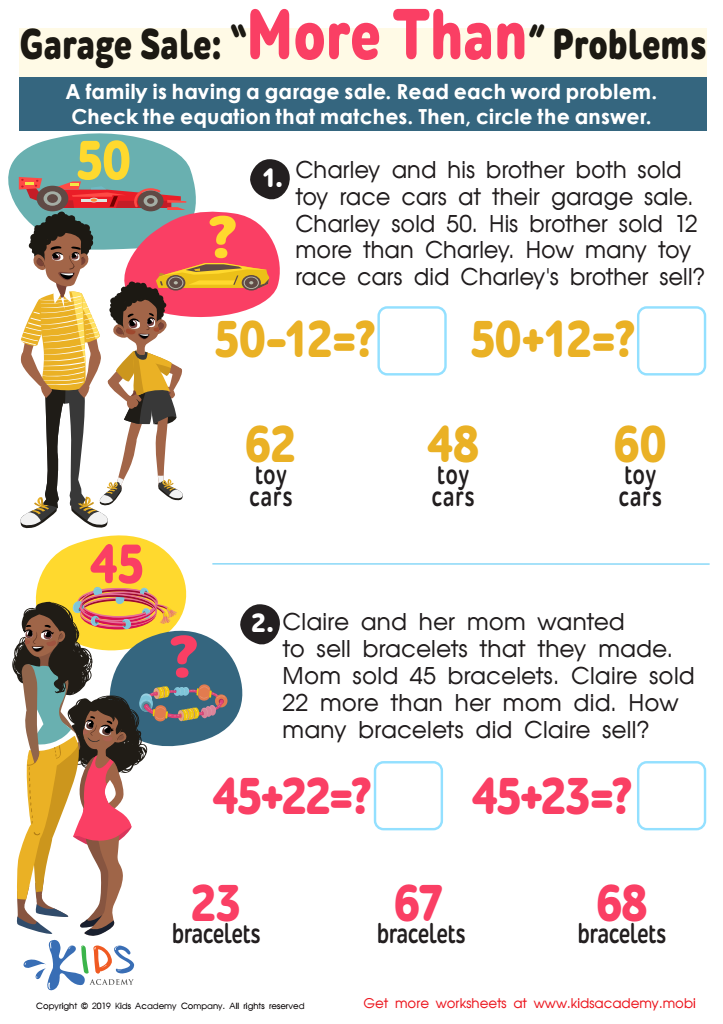

Garage Sale - More yhan Worksheet
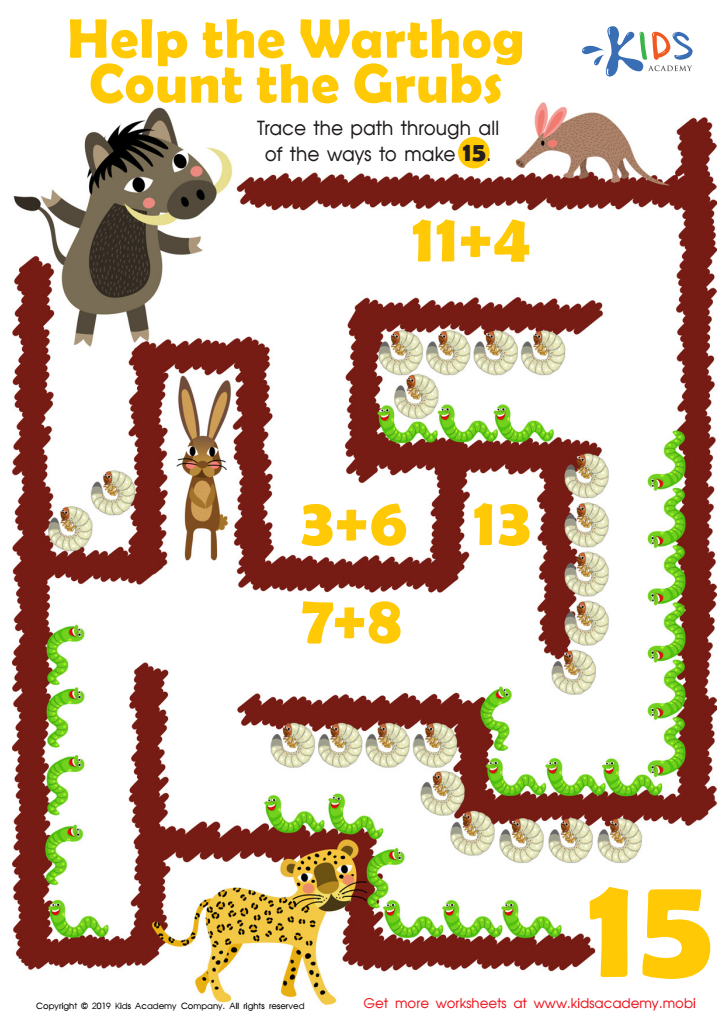

Help the Warthog Count the Grubs Worksheet
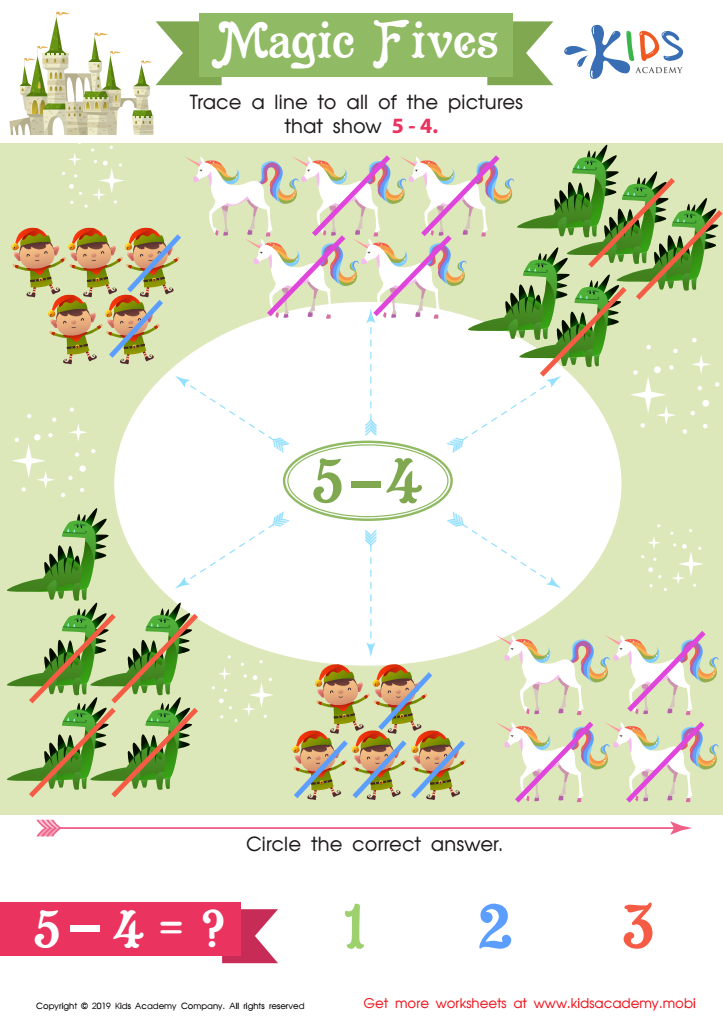

Magic Fives Worksheet
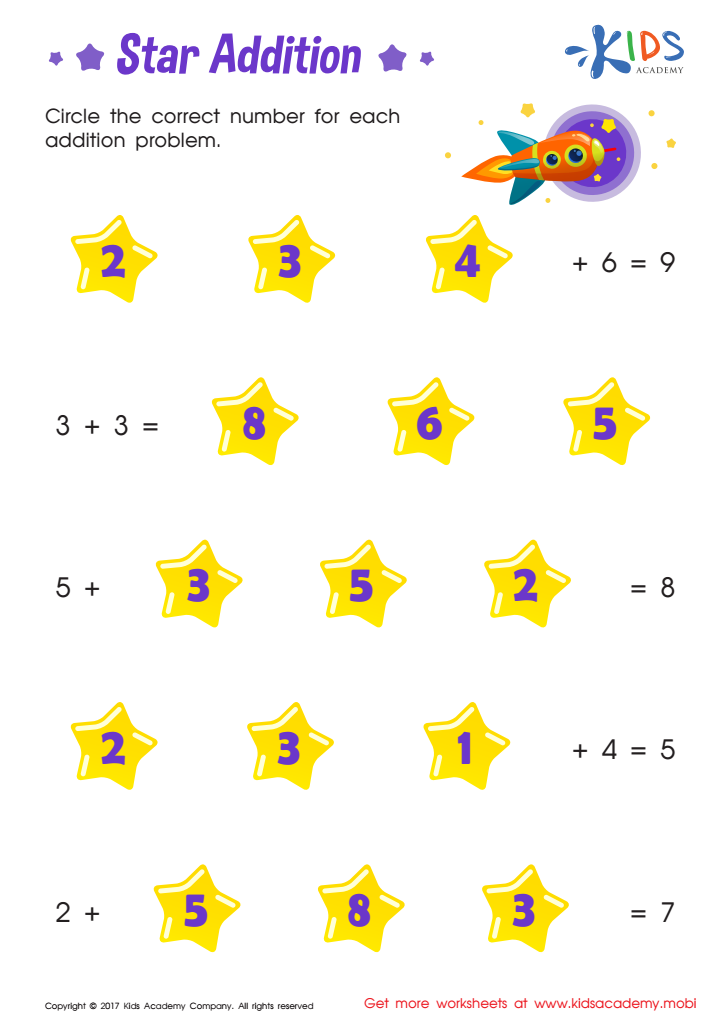

Star Addition Printable
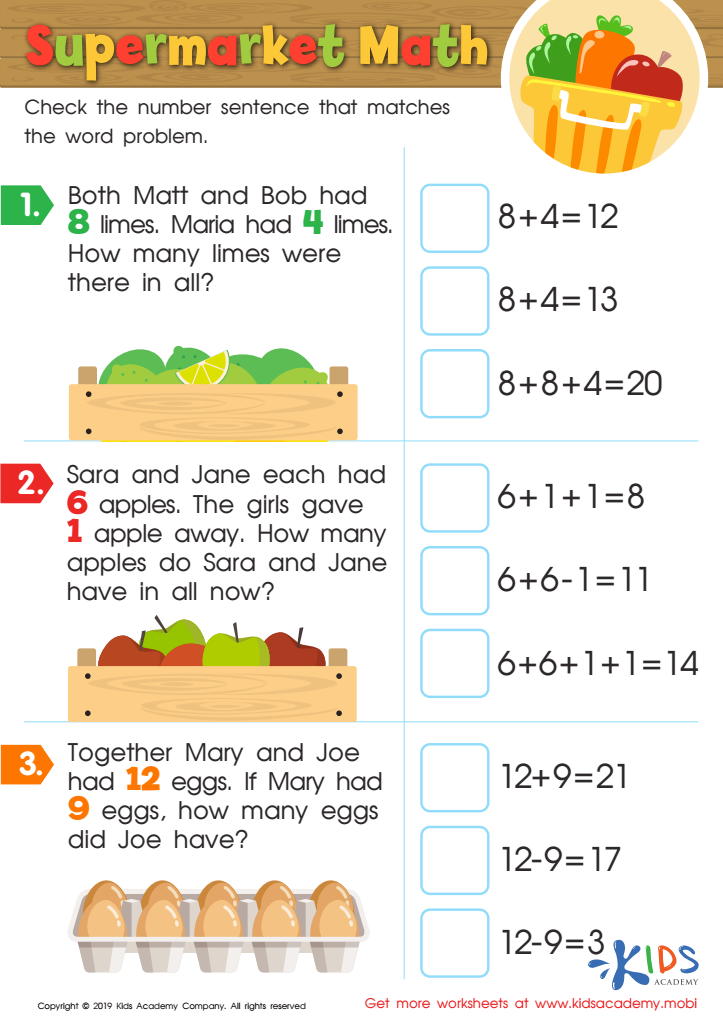

Supermarket Math Worksheet
Parents and teachers should prioritize teaching basic arithmetic, like normal addition and subtraction, to children aged 3-8 because these foundational skills are crucial for their cognitive development and future academic success. At a young age, children's brains are highly receptive and can absorb new information with remarkable ease. Introducing basic arithmetic early taps into this developmental window, fostering a strong mathematical foundation that will benefit them throughout their education.
Basic addition and subtraction are the building blocks of more complex mathematical concepts. Familiarizing children with these operations enhances their numerical awareness and problem-solving abilities, promoting logical thinking and analytical skills. These cognitive benefits extend beyond mathematics, bolstering performance in subjects like science and even reading, where pattern recognition and logical sequencing play key roles.
Moreover, mastering these fundamental arithmetic skills instills a sense of confidence and achievement in young learners. Positive early experiences with math can shape attitudes towards the subject, reducing anxiety and encouraging a lifelong love for learning. Engagingly taught, through games and everyday situations, arithmetic becomes a practical and enjoyable part of a child's daily routine. Thus, parents and teachers play a pivotal role in nurturing a child's potential by giving them the tools to understand, analyze, and interact with the world effectively.
 Assign to My Students
Assign to My Students




















